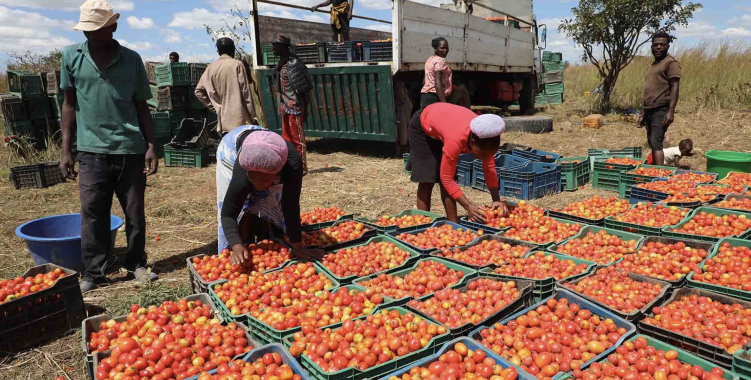"The asset located in Giraul de Baixo, in Moçâmedes, starts working at the latest in October of the current year, with possibilities for the group [owner of the factory] to extend the factory's corporate purpose to other production lines, in addition to tomato paste", informed the provincial government of Namibe, in a statement to which VerAngola had access.
The information was provided as part of a meeting between Archer Mangueira, governor of Namibe, and those responsible for the SANEP group (owner of the factory, through privatization of state properties), held last week and which served for Edilson Chibia and Juan La Torre, general secretary and administrator of SANEP, respectively, inform the provincial government about the "actions that are underway to start the factory's production activity".
On the occasion, Edilson Chibia said that the manufacturing unit, with a capacity of 45 tons, will begin operating experimentally in October, adding that the enterprise will have a production of three tons per hour, in an investment of around 600 million kwanzas.
The factory's operation, according to the person in charge, will involve two stages: the first dedicated to tomato processing, which will have the support of 19 small producers of this fruit who will supply the factory, while the second stage will be focused on fruit transformation, namely passion fruit, orange, mango, pineapple, guava pulp and preserved fruit syrups, writes Angop.
Edilson Chibia also said that, at the moment, the manufacturing unit will have 60 workers, including 52 Angolans and eight Cuban and Italian technicians. However, he added that next year, when the unit will reach its peak production, more jobs are expected to be created, increasing to 80 positions.
According to Angop, near the aforementioned factory, a portion of land measuring 1.5 hectares was allocated to grow tomatoes, and another portion of land measuring 1000 hectares in Tchamilunga, to produce the main raw material on a large scale.
It should be noted that the manufacturing unit was built in 2016. The infrastructure's capabilities include equipment designed to receive, wash and choose tomatoes, crush them, separate them, among others.
In addition to the tomato factory, the agro-industrial complex also includes a cold store, with three cold rooms dedicated to the preservation of fruits and vegetables and another with a capacity for 480 tons of fish, says Angop.







